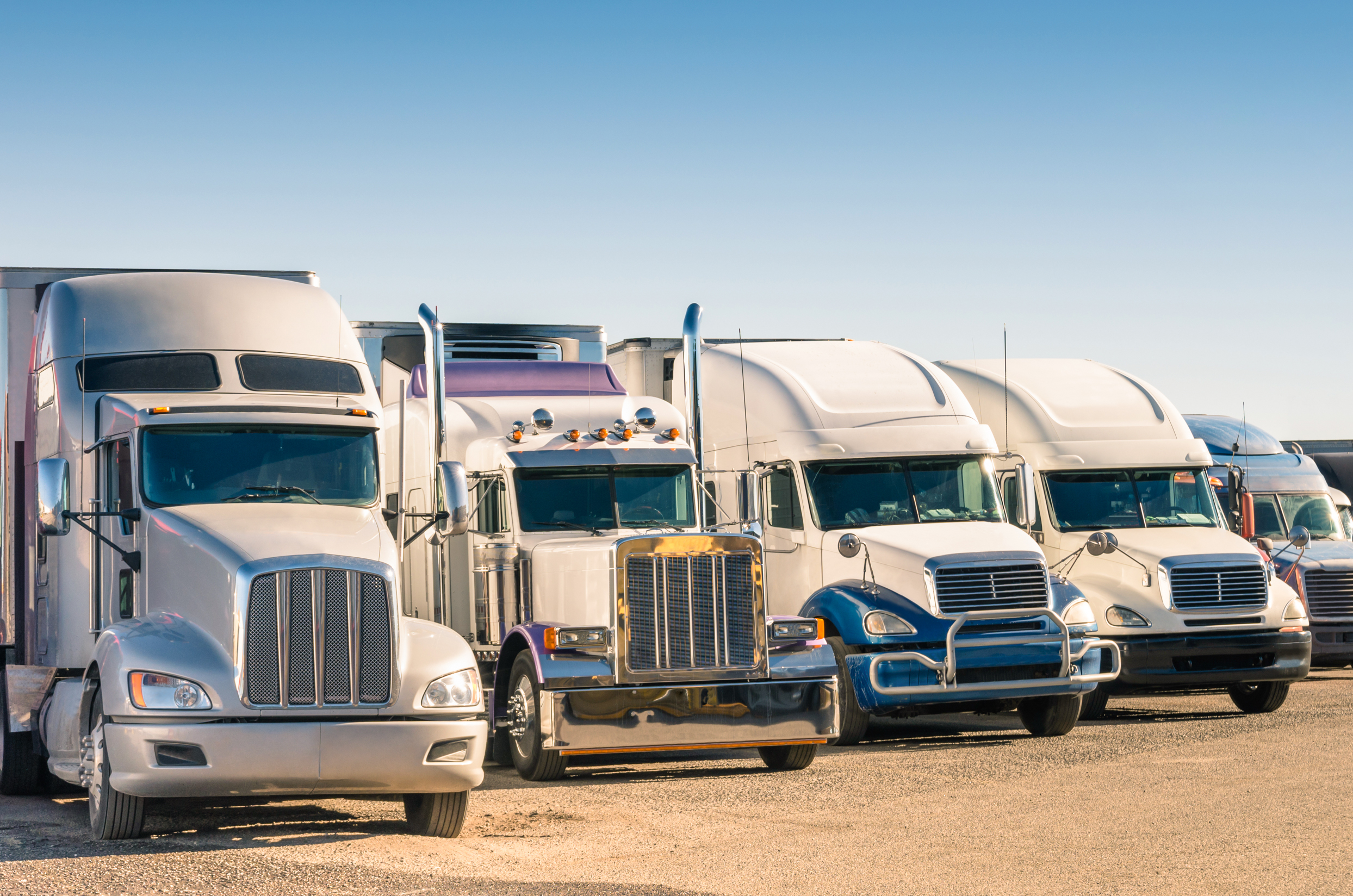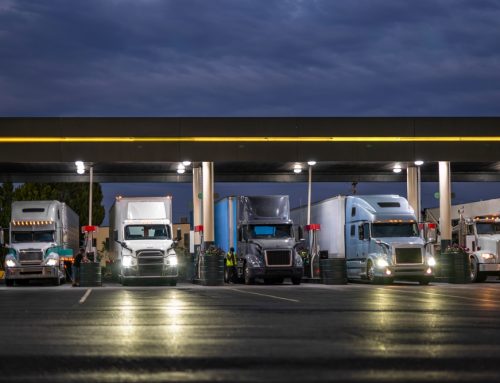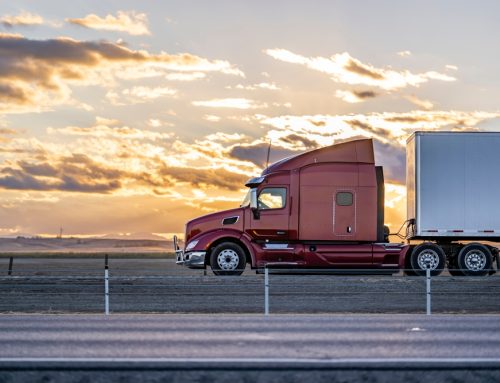Commercial fleet insurance – what is it?
Company cars can be financially protected with commercial fleet insurance. Accidents, theft, and vehicle damage may cost businesses a lot of money, therefore this is an essential component of fleet management.
When applying for operating permission, commercial fleets are required by the Federal Motor Carrier Safety Administration (FMCSA) to get fleet insurance.
Can you tell me what details are required to insure a fleet or commercial truck?
Underwriting a fleet insurance policy usually involves gathering a variety of information from insurance providers. In order to apply, you will need the following documents, which are often requested:
- Declarations page for current business insurance policies.
- If you can’t find a declarations page with your current vehicle insurance policy, you may either ask your previous insurance company for a copy or refer to your current policy.
- Details about your commercial driver’s licenses, including the numbers and histories of any infractions or tickets issued, as well as any applicable violations.
- Detailed information about the safety features and vehicle identifying numbers (VINs) of all commercial vehicles that need insurance.
- If you do not have the vehicle identification numbers (VINs) on hand, please include as much pertinent information about the vehicle as you can, including its model, weight, manufacturer, and year of production.
- For each coverage request, please supply the corresponding years of loss runs from your prior insurance company.
- Verified the accuracy of financial records for a certain time period, including those pertaining to brokerage and trip lease activities.
- Documents from the International Fuel Tax Administration (IFTA) showing the total and per-state vehicle mileage for a certain time period (scheduled to be defined).
- Documentation of fleet safety and maintenance programs, as well as safety ratings derived from government compliance checks.
- Permanent and trip lease documents in duplicate.
Could you tell me the different kinds of insurance for business trucks?
Motor fleet insurance is available to individuals and businesses who operate a fleet of commercial trucks:
General liability insurance
Sometimes known as public liability insurance, protects trucking companies against lawsuits filed by third parties injured or property damaged as a result of their business’s unrelated operations.
The FMCSA mandates freight forwarders, owner-operators with authority, and motor carriers to carry general liability insurance.
This is the policy that most motor carriers use to cover their commercial drivers.
Primary liability insurance
Also known as trucking liability insurance, primary liability insurance is the minimum level of insurance required for operating trucking and transport enterprises.
Transportation companies’ primary liability policies do not extend to damage to freight or commercial vehicles. Motor carriers and authorized owner-operators are required to list or schedule each vehicle on this sort of coverage. Claims will not be released by the insurance company unless this is met.
Non-trucking liability insurance
When people use their cars for anything other than work, they need non-trucking liability insurance. In the time between your return and the next dispatch schedule, your personal car use will be covered by non-trucking liability insurance.
This kind of truck fleet insurance is useful for owner-operators who have leased their vehicles from motor carriers. Although owner-operators have general liability insurance coverage, that policy only covers business operations. Non-trucking liability insurance protects owner-operators from losses during non-business-related incidents.
Bobtail (owner-operator) insurance
This owner-operator insurance protects policyholders after they deliver cargo and when using their vehicle for purposes other than trucking.
Owner-operators under lease agreements can get bobtail insurance when operating for mobility and not while transporting property for the motor carrier under whose operating authority they deliver, and whose liability policy they depend on while trucking.
Bobtail insurance sounds like non-trucking liability insurance. However, there’s one crucial difference.
Bobtail insurance covers owner-operators when using the trucks without trailers whether for personal or commercial purposes. Non-trucking liability protects the owner-operator when using the truck for personal intentions, whether or not they carry the trailer.
Bobtail insurance doesn’t cover damages to the owner-operator’s truck, but only the liabilities arising from an accident.
These liabilities include:
- Expenses for a lawsuit if one occurs.
- Hospital bills and treatments for any injuries inflicted on a person.
- Payment for all property damages.
- Motor truck cargo insurance
- Motor truck cargo insurance offers protection on the freight or commodity hauled by a for-hire owner-operator. This policy type covers liability for lost or damaged cargo resulting from vehicle crashes, fire, or the striking of a load.
Physical damage insurance
Physical damage protection is a general term for insurance policies covering your commercial vehicles. Physical damage coverage includes collision insurance and a full, comprehensive policy.
Owner-operators can also opt for fire and theft protection with combined additional coverage (CAC), a limited insurance for specific heavy-duty commercial vehicle types.
Contingent cargo insurance
Contingent cargo insurance is coverage for freight brokers involved in complicated claims between a shipper and a motor carrier. This commercial truck insurance covers typical causes of losses, such as cargo theft and damage during transit, for any carrier.
Freight brokers should always carry this type of haulage fleet insurance to be prepared for the following incidents:
- One or more parties fail to fulfill their duties.
- The insurance provider declines a cargo insurance claim.
- The responsible carrier unwillingly or can’t pay for losses incurred to the shipper’s cargo.
Workers’ compensation insurance
Workers’ compensation insurance covers costs associated with an employee’s work-related injury or illness. This insurance even covers legal fees should the employee choose to sue the company.
State laws mandate most companies to obtain this type of motor fleet insurance in case their staff gets hurt on the job.
Refer to your state laws for trucking-related injuries covered by workers’ compensation insurance. Regulations usually cover:
- Work-related illnesses from exposure to hazardous chemicals.
- Traumatic injuries after a vehicle accident.
- Stress injuries from repetitive cargo loading and unloading.
How much does truck and fleet insurance cost per month?
There isn’t a single answer to “how much is truck insurance a month?” because the cost depends on several factors, including insurance type and carrier. Cheap truck insurance doesn’t always mean best, and fleet managers looking for cheap truck insurance should find the pricing option that works best for them.
The estimated monthly insurance cost for owner-operators with their own authority can run from $667 to $1,250.
If you’re an owner-operator leasing to a motor carrier, the average monthly truck or semi-truck insurance cost can range from $167 to $333.
The monthly semi-truck insurance cost also varies according to factors such as insurance type and carrier. Here are some average price ranges by insurance type:
- Primary liability coverage: $416 to $1,000.
- General liability: $42 to $66.
- Umbrella policy: $50 to $58.
- Bobtail insurance: $29 to $50.
- Cargo insurance: $33 to $100.
- Physical damage: $83 to $250.
- Occupational or workers’ compensation insurance: $133 to $183.
Check with your insurance provider for the monthly insurance cost applicable specifically to your fleet.
Beach Insurance can help with commercial trucking, transportation and logistical insurance so please reach out to us today for a quote: 843-718-0075 or get a quote via our website.







Leave A Comment